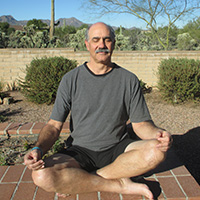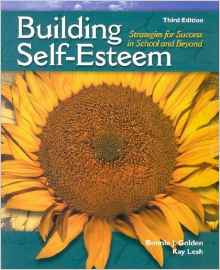Most of us are quite aware of the power of words. From advertising (Just Do It), social media vitriol, to the positive support of an encouraging teacher or friend, language matters. The written or spoken words we employ when we communicate with our loved ones, coworkers, friends, and others impact on our feelings and behavior.
If we are unconscious of the habitual ways we talk to ourselves, and take as factual an internal monologue potentially laced with negativity, black and white thinking, or even grandiosity, then, we increase our suffering.
Yoga, Self-Knowledge, and Suffering

What brings you to the practice yoga? Certainly the physical experience and therapeutic effects are reasons many individuals are first drawn to yoga. Eventually and incrementally we become more aware of our mind states. In the 5-kosha model, the Manomayakosha is the thinking mind, which consists of our thoughts, beliefs, and opinions. Much of this kosha is mediated from the input of our five senses. Our self-talk, affirmations, mantras, and visualizations are created in the thinking mind. We learn many meditation techniques through observing this kosha.
When you are able to objectively observe your own thinking, physical and breath responses, and feelings, you are enlisting the vijnamayakosha. This kosha can be described as witness consciousness, or the Seer. I often think of this part of ourselves as our inner teacher. Through self-knowledge recognize our true selves, as well as our beautiful potential.
From Ignorance to Self-Knowledge
Avidya is the Sanskrit word for ignorance or delusion and is believed by the Yogis to be the root cause of suffering. Through the various yoga paths, we have the potential to move from a state of avidya to self-knowledge and the kosha model can support our journey. As we increase self-understanding, self-compassion, and self-realization we suffer less. We begin to understand ourselves better through simple methods such as modifying habitual self-talk, and treat ourselves and others with greater compassion.
Word watch-A simple self-observation practice with profound effects
One of the many benefits of meditation as part of our yoga practice is the increased ability to cultivate clear thinking and objectivity. This objective wisdom part of ourselves is variously referred to as the seer, the wisdom self, or the buddhi mind (buddhi-that which can discriminate or one who has awakened.) In my experience, meditation practice helps me connect my wisdom self (vijnamayakosha), watch the mind’s activities and habits, yet decrease attachment to the stories I tell myself.
A Simple Observation: Get rid of the MOANS!

MOANS is an acronym I developed in my years as a a counseling faculty member guiding students in paths to self confidence.
MOANS stands for:
Must
Ought
Always
Never
Should
These words impose unwavering, rigid demands on yourself, others, or the world. Demands that are impossible to fulfill 100% of the time. They lead to internal guilt and feelings of “less than” for oneself, and when we impose these demands on others similar feelings as well as defensiveness can occur.
Examples:
MOANS: “My partner is always arguing about money”.
vs
WISDOM FACT: “My partner argued with me about money last Sunday.”
MOANS: “ I should have been screened in for that job interview”
vs
WISDOM FACT: “I would really would have liked to have been screened in for that job interview. And I have no knowledge of other factors that went into the decision.”
MOANS: “I’ll never learn my accounting”
vs
WISDOM FACT: “I may learn parts of accounting practice, however I don’t think I want to spend the time and effort to learn accounting perfectly”.
Catching yourself when using faulty language may seem simple; however if you believe in the power of words, and their impact, the knowledge of your self-talk will help to shift your day to day feelings and outlook and decrease suffering. And that is a path to self-realization.

1 Comment
Comments are closed.